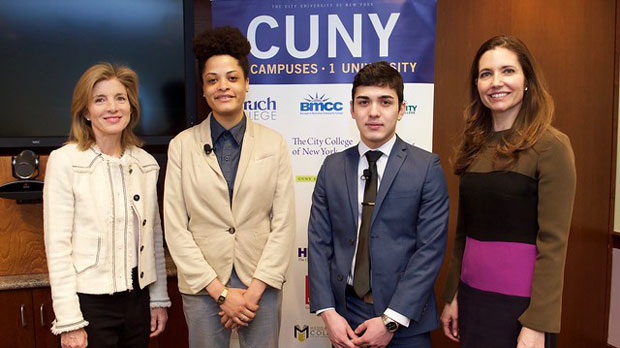
Source: NPR
Which higher education institutions are the most impactful in the nation? Right off the bat, most would say the elite universities, such as Harvard and Stanford. But when it comes to how many lives are actually being touched and changed through higher education, it makes sense to consider the impactful role of community colleges, where diversity is high and where the adversity students have faced shapes classroom conversations to be richer and fuller.
NPR reports that City University of New York is not normally celebrated as one of the “best” colleges in the U.S., but it actually is one of the most diverse and one of the largest university systems in the nation, with more than a quarter million students from 200 countries. This, NPR reports, could be more indicative of high quality education in the long-run.
In an interview with college President Gail O. Mellow, NPR unveiled some of the key aspects that make community colleges such impactful resources in the higher education system. Some are more obvious, such as the fact that many students who go to community colleges are well prepared for transferring to prestigious universities, while other benefits are less obvious, such as the wealth of diversity that these institutions often mirror in their classrooms.
In the wake of college admission scandals that show how some students buy their way into prestigious universities, Mellow says that it is frustrating that community colleges are often supporting a vastly larger pool of students and changing more lives than elite universities, yet running on tiny budgets.
In response to reports that New York City’s specialized high schools are admitting few non-white students, Mellow expresses the need to focus on all of the rest of the education sector, rather than obsessing on the few schools that aren’t even serving a huge portion of the next generation – similar to the way in which society focuses on top-tier universities, rather than on supporting community colleges, which are also driving impactful change.
“Why are we focusing on the top 0.01 percent when there’s real work to be done on the other 99.9 percent of education?” she says, as reported by NPR.
“Who teaches? What do we teach? Are those students getting the education they need?”
Read Full Story: NPR
